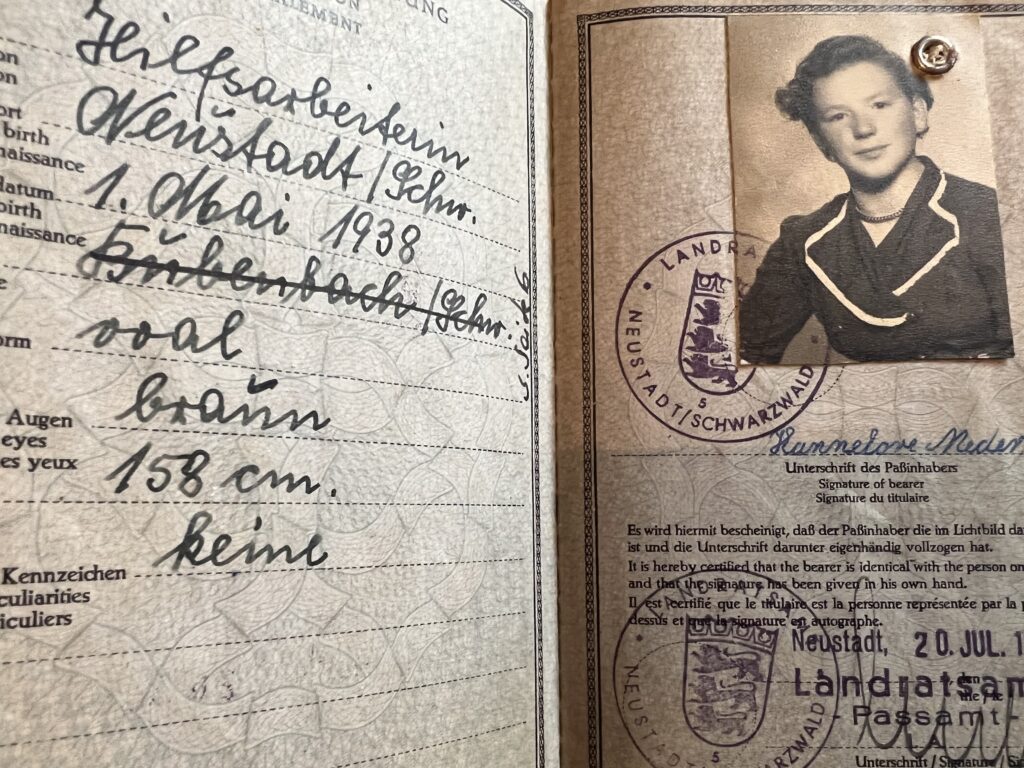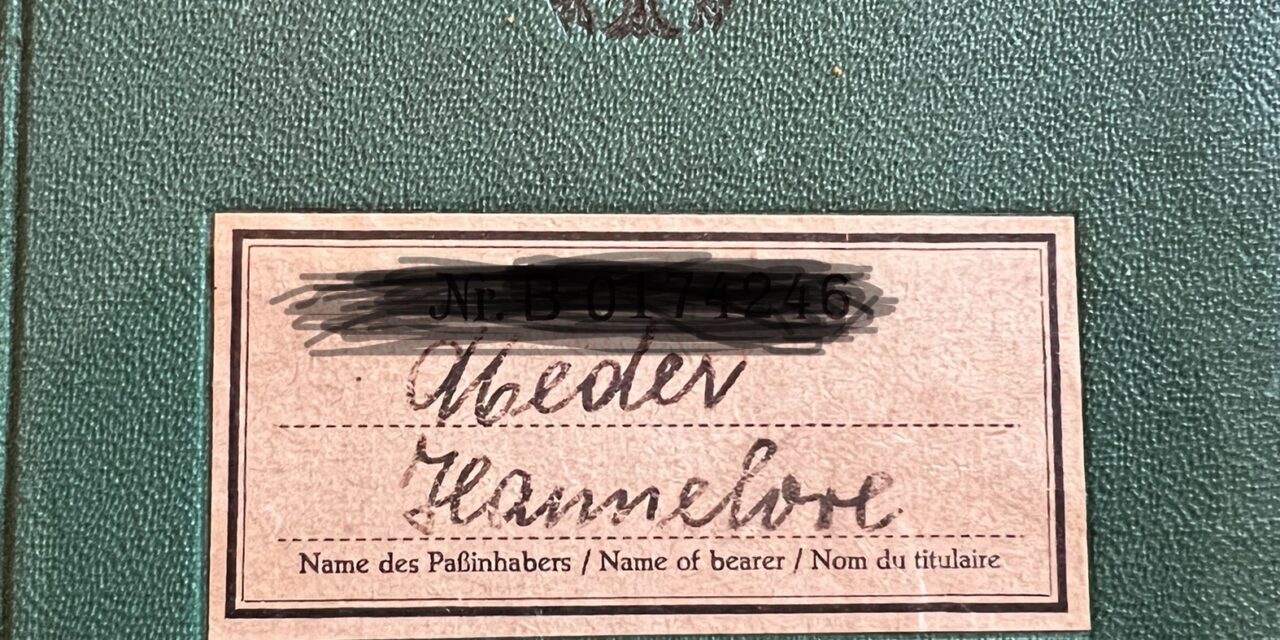Growing up as a first generation American is sometimes a weird experience. Having a parent who was born in a foreign country can make one feel different from their peers – something a young person usually doesn’t seek. In a family already odd for the lack of a father/husband, having a mother who apparently spoke with a heavy accent (I say ”apparently” because I don’t hear my mother’s accent) and said “Gesundheit” instead of ”God bless you,” drew unnecessary attention to our being unlike most of our peers.
I didn’t like it, much less, appreciate it.
Eventually, though, I began to value the fact that my upbringing and childhood circumstances were somewhat unique. It was cool to recognize those infrequent airmail letters we received as coming from a place far away. A country populated with relatives I had never met that I pictured as being always snowy, thanks to my obsession with the book Heidi.
When I finally visited Germany while in my early twenties, I was welcomed by a family still puzzled over their rejection by my mother. On that very first trip, I was just a few years younger than my mother had been when they saw her for the last time in the mid-60s. Our resemblance to one another is strong and it seemed as if my presence provided some consolation to my Opa and the aunts, uncles and cousins who all greeted me with warm curiosity.

I returned the next year, this time with my brother whom they had once before when he was a toddler. Again, we were well taken care of and embraced by every member of our mother’s large, extended family. Meeting my mother’s many siblings and learning about their lives and our family history, put another piece in place in my life. In the three decades since that visit, there have been many other subsequent trips and each provided new knowledge of my mother and the area (the Black Forest) where she grew up.
There’s a definite connection.
My only regret when it comes to my maternal family is that I am unable to speak German. We had spoken it at home as children, buy my mother related that I came home from kindergarten one day and told her that “This is America and we speak English here.” After that day, she no longer spoke German to us.
Those were the days when few concessions were made for immigrants (or left handed folks!) – we had to adapt.
Over the years, there have been many times when I’ve thought about obtaining citizenship from one of the countries where my parents were born. Despite never having met my father, his family have encouraged me to seek Irish citizenship. The complications of having to prove paternity in a situation in which the father has been dead for nearly 40 years, and whom had never publicly confirmed his role in my birth, has always felt overwhelming, even with the assurances of his remaining siblings that I am clearly his child.
I was at an impasse.
In recent years, though, I’ve become increasingly concerned about the direction this country, the country of my birth, is moving in. The politics and mood strike me as discordant with my own priorities and beliefs and I often feel out of step in a country which seems committed to reversing the rights of women and the BIPOC and LGBTQ communities. I don’t feel represented.
This sense of not belonging has caused me to consider, with increasing frequency, that perhaps this country is not my country. Maybe my mother’s choice to emigrate here was a mistake, a generational folly. Maybe I don’t really belong here.
Last month, I started researching what was necessary for me to obtain German citizenship. I contacted the German consulate in NYC and completed their questionnaire to determine if I had grounds to pursue dual citizenship. Amazingly, within days I was informed that I almost certainly qualify for German citizenship and an accompanying German passport. In fact, I am already technically considered a German citizen. Pending, of course, their receipt of a few documents to substantiate my position.
In early November I’ll be meeting with a consulate representative to formalize my status as a German citizen and apply for a second, German, passport. I’ll retain my U.S. passport, because of my children, but am really excited at the thought of having an EU passport. I’m really comfortable in Europe and having European citizenship opens up options for my next phase of life. Traveling between countries will be easier and I can work and live in any member country. I’ll be able to rectify one of my few regrets in life – living in a radius of 150 miles for its entirety.
It truly feels like a golden ticket.

